Project Description
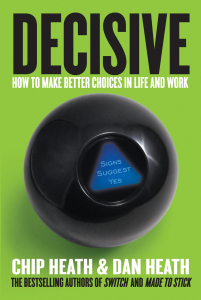 Subtitle: How To Make Better Choices In Life and Work
Subtitle: How To Make Better Choices In Life and Work
By: Chip Heath & Dan Heath
Notes:
- Process matters more than analysis by 6x to make good decisions.
- Hinting at alternative purchasing decisions is enough to greatly improve our primary purchase decision.
- The best names come from considering many names at once.
- Use multiple teams and have each pursue a different angle.
- It’s less efficient, but produces better results.
- Never ask if you can do this or that. Always try for both.
- Producing simultaneous designs and getting feedback at the same time helped to produce better results.
- Helps the designers to feel less criticized, since they have multiple designs.
- Multi-tracking keeps egos in check.
- More choices make purchasing decisions harder and less profitable.
- Decision paralyze happens when the number of options passes 6.
- Devil’s advocates are a great way to create much better decisions.
- Force someone to build a case against a decision.
- Instead of saying why something can’t happen,
- Pretend that something can happen and focus on what’s needed in order to make it possible.
- That way you can really see if something can happen or not.
- Pretend that something can happen and focus on what’s needed in order to make it possible.
- Ask real questions of people:
- If interviewing for a job, ask specifics. When did you get home each of the days last week.
- Ask tough, disconfirming questions.
- Ask yourself how you can fail by not asking the correct questions.
- Keep a marriage diary where you only write down the positive things your spouse does.
- Improved 70% of marriages for those who did it.
- Fights the tendency to pick out the negatives in the person.
- Assume positive intent in your people.
- Helps to fight negative tendencies.
- Make a deliberate mistake if it has the ability to greatly surprise on the upside.
- If you lose, you can learn from it still.
- Use a base rate to keep yourself tracked against something else to make better decisions.
- Entrepreneurs are better at prediction, because they generally dismiss predictive data and look for facts.
- Entrepreneurs favor active testing. They can’t predict the future, so they test for it.
- To avoid interview biases, give people short term contracts to prove themselves.
- Sleep on important decisions.
- Use 10,10,10:
- How would you feel about your decision in ten minutes, 10 months, and 10 years?
- Real example: Divorce sucks. She is super stressed. Hormones. Changed way of life.
- How would you feel about your decision in ten minutes, 10 months, and 10 years?
- When making tough decisions for yourself, pretend you were advising a best friend on the issue.
- Ends up making a great decision.
- Real example: don’t get divorced (she is stressed and has a tendency to shut out people).
- Ends up making a great decision.
- How to bias for action: Do first and ask for forgiveness later.
- Before starting a project, have each person write down one way the project could fail.
- They prepare for each of those scenarios.
- Create tripwires in case you are unsure of a decision.
- Spend no more than this amount on an idea or startup.
- Spend no more than this long on a project.
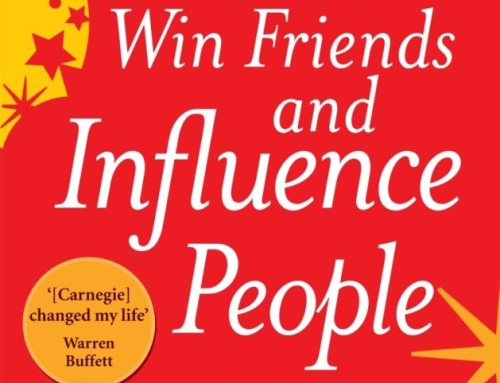
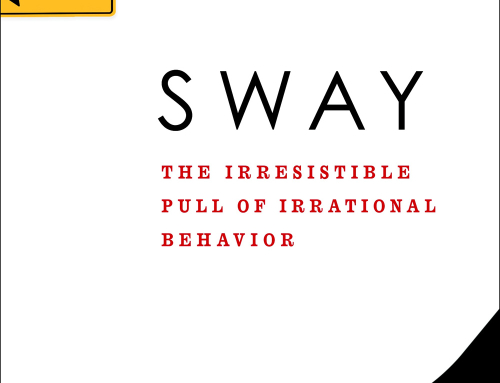
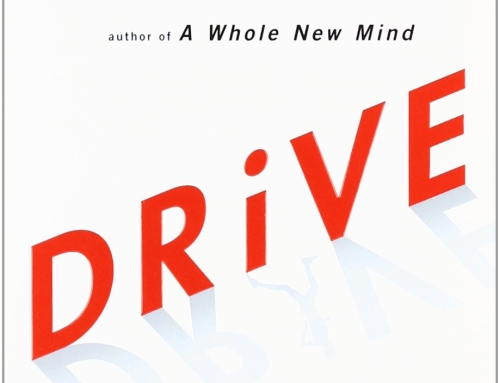
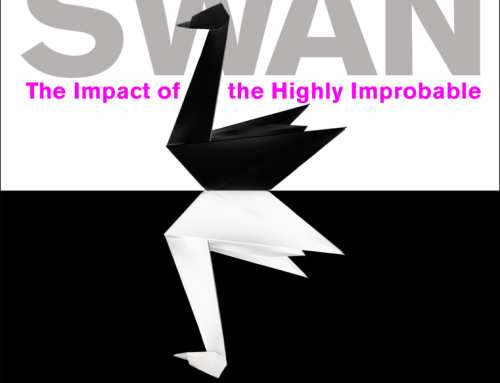
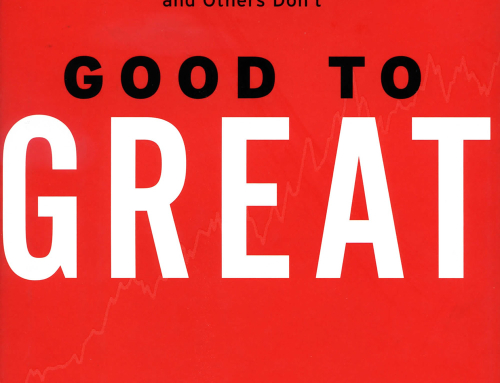
Leave A Comment